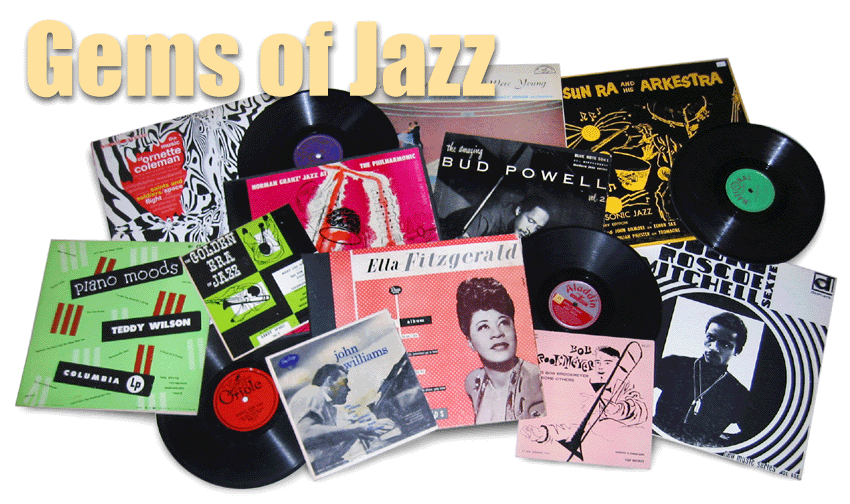Here's another jazz player who labored long and hard in the vineyards but never received his due. Antony Sciacca, known in music circles as Tony Scott, made numerous records with many of the jazz greats beginning way back in 1945 without ever attracting much attention. Maybe it was because he played clarinet, an instrument that belonged stylistically to an earlier generation? Dunno, but the guy's largely a footnote today.
Tony Scott does, however, get credit for spreading the jazz gospel abroad. Not long after this record was made, he decamped from New York and headed off to the mysterious East. In the '60s he lived variously in Japan, Malaysia, the Philippines, Indonesia and other exotic locales in Asia. Wherever he went, he proselytized for jazz and won numerous converts for America's greatest cultural export. He also delved into zen meditation and other Eastern spiritual practices, releasing several albums having those experiences as a central theme. He was successful enough abroad that as early as 1960 Japanese jazz fans voted him best clarinetist in one of Down Beat's polls. Of course, that's an honor he'd already won in the United States four times.
This recording comes to Gems via eBay – a source that I usually try to avoid because I'm much too cheap to pay their prices. But the LP went for all of ninety-nine cents, so even with the shipping it was a bargain. It was recorded in 1957 for the ultra-obscure Perfect label (the liner claims it was a division of Epic Records, itself a division of Columbia). It is notable for several reasons.
 |
| Evans, like Tony Scott, was from New Jersey. They made several excellent records together for RCA in addition to this one. |
The first is the presence of pianist Bill Evans. These sessions capture Bill just months before he joined Miles Davis and emerged onto the national stage. He exhibits here many of the unusual chord voicings and unorthodox lines that later came to define his style, both with Miles and with his famous Evans-LaFaro-Motian trio. And coincidentally, Paul Motian is the drummer on these sides (or maybe not so coincidentally – Evans and Motian worked regularly in Tony Scott's groups in 1956 and '57).
The other reason to grab this recording is the presence of trombonist Jimmy Knepper. One of the unheralded greats on his instrument, Knepper had just started his on-again-off-again association with Charles Mingus in 1957. On this LP he exhibits a dynamism that may have been inspired by the bassist's own aggressive approach to music and composition.
For added interest are Clark Terry on one number and baritonist Sahib Shihab on two others (all the other baritone solos are by Scott himself). And this may be legendary bassist Henry Grimes' first recording. (Actually, it was Henry's third recording session, preceded by dates with Shahib Shihab and Lee Konitz – this info courtesy of Margaret Davis Grimes. Thanks, Margaret!).
So here is Tony Scott on clarinet, with his characteristic scratchy tone and cascade of notes. All the compositions are his – with the obvious exception – and some are more than a bit quirky. You'll note that the back cover offers an incomplete listing of the tunes, but Gems has corrected it in the download. As always, these tunes were ripped from the original vinyl with only a minor tidying up of the sound.
My Kind of Jazz
Tony Scott
Tony Scott, cl, bar; Clark Terry, tp (3); Jimmy Knepper, tbn (1); Sahib Shihab, bar (2);
Bill Evans, p; Henry Grimes (4) or Milt Hinton, b; Paul Motian, d.
New York, NY; November 16, 1957 (1, 2, 5), other titles 1957; Perfect PL 12010
1. Villa Jazz (1)
2. Zonk (1)
3. Blues for Fives (1)(2)(4)
4. Third Moon (3)
5. For Pete’s Sake (1)
6. Just One of Those Things (2)(4)
Find it here: http://www.mediafire.com/?ww1ujfszedwmzdd




